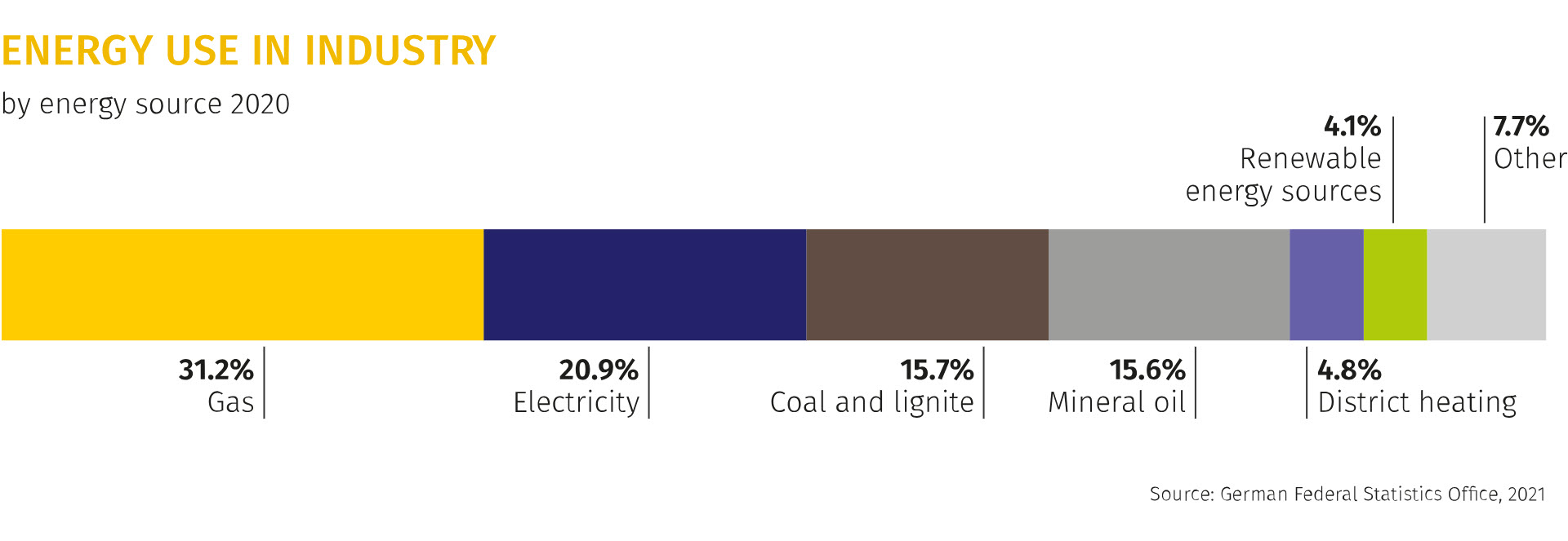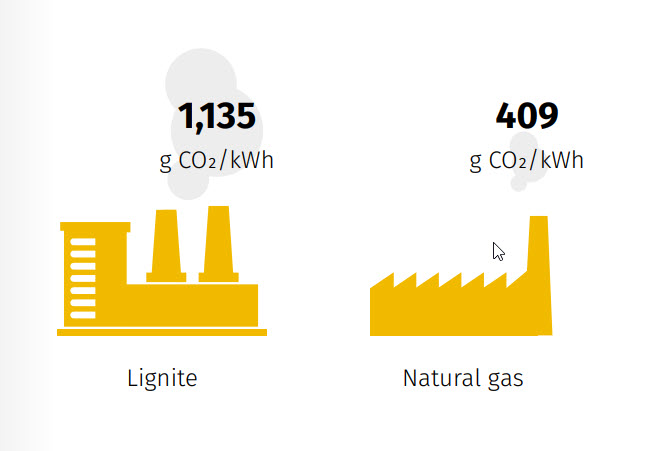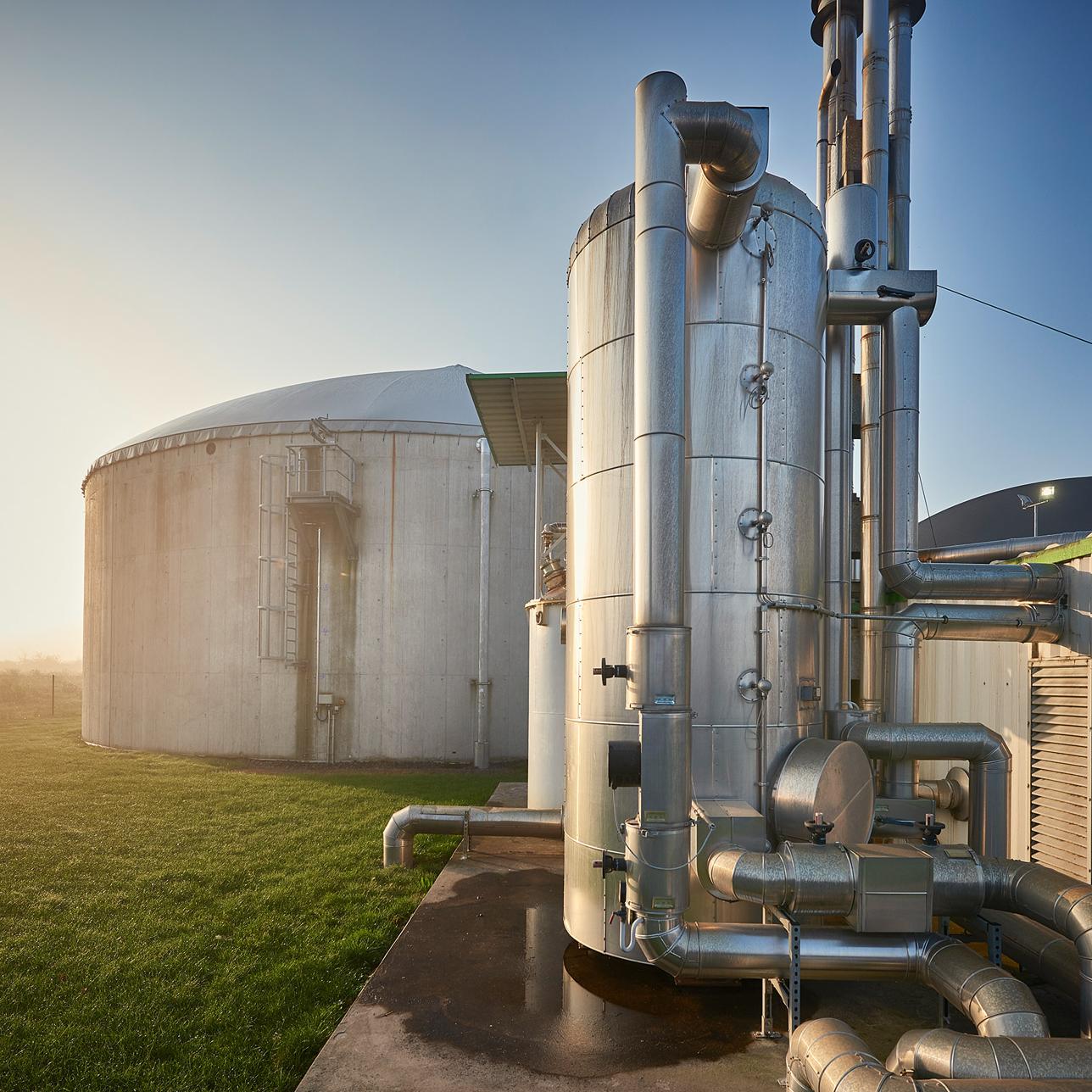Decarbonisation of gas
Natural gas: an important building block for decarbonisation
Germany’s gas consumption remains high: in 2021, natural gas covered almost 27 percent of the energy requirements in Germany. Almost every second home heats with natural gas, and 1.8 million commercial and industrial companies use the energy source, for example to generate process heat or industrial electricity. Natural gas is the number one energy source for the chemical industry: 120 billion kilowatt hours were consumed in 2021. Gas-fired power plants also run on natural gas to produce electricity and heat. Natural gas therefore remains a mainstay in the energy mix. In addition, natural gas can still be an important bridging technology for decarbonising our entire economy and society and making them climate neutral.
For industry in particular, natural gas is an important energy source and currently an indispensable component of numerous processes. The glass and ceramics industries in particular – strongly represented in Eastern Germany and major employers – depend on the availability of natural gas. For the chemical industry, an important part of regional value creation especially in the states of Saxony and Saxony-Anhalt, natural gas is actually the number one energy source. Gas is used there in the production of, for example, fertilisers or refinery products.

We diversify our gas procurement sources to ensure security of supply
The many billions of molecules of natural gas that we import, store temporarily, and transport through the pipelines of our network subsidiary ONTRAS cannot be replaced in the short term. The ramp-up of the hydrogen economy, planning, permitting, and construction of new green power plants, as well as the expansion of biogas production, all take time.
Substances remain important building blocks in our energy supply architecture. Our goal is to replace today’s gases, which are still predominantly fossil in origin, with renewable and decarbonised gases as quickly as possible, but also with due prudence and care.
Natural gas will also play a role in the coming years with regard to the undisputed requirements of climate protection and CO2 reduction. Natural gas produces significantly less emissions than coal or oil. Modern gas-fired power plants emit up to 70% less CO2 than lignite-fired power plants. In addition, they can be flexibly managed; they can be ramped up and also ramped down in a short time to balance the fluctuating renewable energy generation from wind and solar. The great importance of natural gas is also amplified by the well-developed infrastructure: gas network and gas storage facilities form the backbone of energy supply system and contribute to system stability in Germany and Europe.
CO2 footprint of electricity generation

Decarbonisation of the gas sector: clear roadmap for energy transformation
clear and sustainable roadmap for natural gas already exists: where fossil gas is still used today to meet our country’s energy needs, the possibility of using green gases opens up in the future: biogas or biomethane today and hydrogen in just a few years.
With the decarbonisation of the gas sector, Germany will initially make a central pillar of its energy supply low-carbon and even completely CO2-free by 2045. This is also associated with a huge surge in innovation. We therefore see the upcoming phase-out of natural gas as an energy source not only as a necessity, but also as a great opportunity.

